Literacy Games For Kids

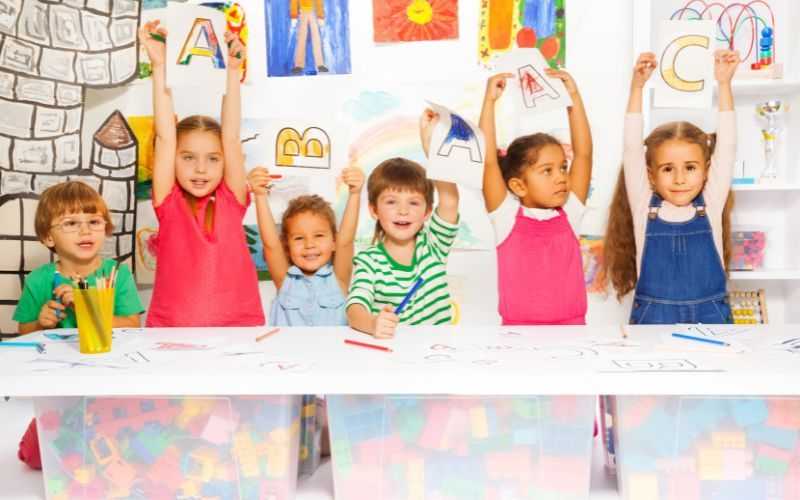
Encouraging your child to practice literacy skills can be challenging, especially if they find literacy boring, or look at it as schoolwork. At Night Zookeeper, we want to inspire children to love learning, and are big fans of using educational games to keep them engaged with whatever they’re learning.
Whether your child is at an early literacy or later elementary level, we believe that the literacy activities included in this article will provide you with a new, refreshing way to develop and build upon your child’s existing literacy skills! From family game nights, to epic singing battles, we hope these help spark a passion for learning in your child, all while having fun!
Everyday Literacy Games
1. Grocery shopping
Turn grocery shopping into a fun literacy game by getting your child involved in the process! Start by listing the items you need out loud, and ask them to write them on a piece of paper to take with you to the store. Then at the store, you can task your child with getting “special items” for you, creating a scavenger hunt!
Not only will this improve their active listening and writing skills, but it will also encourage your child to build useful organisational skills, broaden their vocabulary as they learn the names of different items, and improve reading comprehension skills from reading product descriptions at the store.
2. Cooking
Once you’re back from grocery shopping, keep the literacy games going by cooking as a family! Cooking is a wonderful activity for many reasons, and can be extremely effective in building literacy skills. From picking out the right recipe to enjoying the home cooked meal as a family, you can transform the whole process into a fun literacy activity!
First, get your child to read the recipe out loud (at pre-k level, we encourage you to read the recipe to your child and encourage them to gather the ingredients they recognise). Then, ask your child to collect all the ingredients needed and repeat what they are one by one. When you have all the ingredients gathered together, you can encourage your child to measure them out and start cooking! This activity is also a great way to develop fine motor skills, which are crucial for your child to be able to write.
3. Tell me about your day
Asking your child about their day can serve as an effective literacy activity, as it will help children to broaden their vocabulary, work on articulation and build communication skills. It’s particularly useful for early literacy development, as younger children (pre-k and younger) are likely unable to partake in more complex literacy games.
“Tell me about your day” is a wonderful “literacy game” that also allows you to bond with your child and understand the way they think and process emotions!
4. Bedtime stories
Reading is a traditional literacy activity, and we’re huge advocates for sharing the joy of reading with your child from a young age. Bedtime stories are an easy way to introduce reading to your child!
If they’re older, you could take turns reading pages of your chosen book every night before bed, which will also allow your child to work on their reading skills. If your child is not yet able to read, you can read to them as a way to help them wind down and build creative thinking skills as they imagine the action, settings and characters of the story.
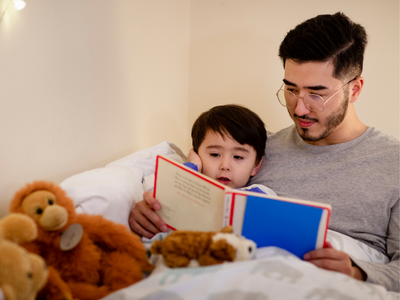
Indoor Literacy Games
1. Night Zookeeper

Night Zookeeper is an awesome online reading and writing program - the perfect indoor literacy activity! The program uses a gamified approach that makes writing fun and engaging, and will encourage your child to improve all their literacy skills, including grammar, spelling, and punctuation.
The interactive lessons, educational shows, word games and literacy challenges available will keep your child entertained for hours, and this is something they can use completely on their own. It’s one of the best educational games out there, as it can be used from anywhere, at any time!
2. Drawing
Drawing is a recommended literacy activity for several reasons. Whether your child chooses to draw on a piece of paper, or using an electronic device (such as a tablet), drawing promotes the development of fine motor skills, which are required for handwriting. It is also a wonderful way to inspire your child to think creatively and practice self-expression.
Turning drawing into a literacy game is simple, and can be done in multiple ways. You could have a specific topic, such as “nature”, and ask your child to draw everything that comes to mind when they hear that word. You can also ask them to draw their favorite scene from a story they read recently!
For more advanced learners, you can use drawing to introduce new vocabulary words, including new nouns, verbs, and adjectives, encouraging your child to think of the meaning behind the word. For example, you can ask your child to draw “generosity”, or “kindness”, and see what they come up with!
3. Word games
Learning through play, or gamified learning, can greatly impact your child’s literacy skills development. There are endless ways to develop these skills through word games, and you can easily adapt them to your child’s current learning level.
For early literacy learners, you can introduce sight words through different word games, such as sight word bingo. More advanced learners will need more advanced literacy activities, such as using games to teach them rhyming words and verb tenses.
4. Reading games
Turning reading into a literacy game can have many benefits. Reading is an excellent literacy activity, as it encourages children to learn new words, recognize and understand how to implement different sight words, and is an academic skill that is needed in everyday life. It also helps children understand the more technical side of writing, such as grammar and punctuation.
5. Memory game
Playing memory games can help your child build useful tools to help them stay focused and engaged in the topics they’re learning, and can be another great way to practice literacy skills. Card matching games are one of the most popular resources to help children work on memorization, regardless of what the theme of the game is. To directly link this to literacy, you can play by matching synonyms, antonyms, and much more! On Night Zookeeper, the memory game “Word Pairs”, encourages children to play a fun matching game while learning about similar and opposite words. Give it a try!
6. Karaoke
Who doesn’t love a good sing-along?!
Organize a karaoke night with your family for a fun-filled, educational evening! While it might sound silly, singing can help develop phonics and recognize rhyming words. It’s also a fun alternative to reading a book, especially if your child isn’t the biggest fan of reading.
While they may know the chosen song from beginning to end, your child will be presented with the lyrics on screen, which will serve as a wonderful way to learn new words, identify rhyming schemes, and much more!
7. Scrabble
Scrabble is the ultimate spelling game! Not only is this board game a fun way to practice spelling, but it’s also effective in encouraging children to learn new words and expand their vocabulary.
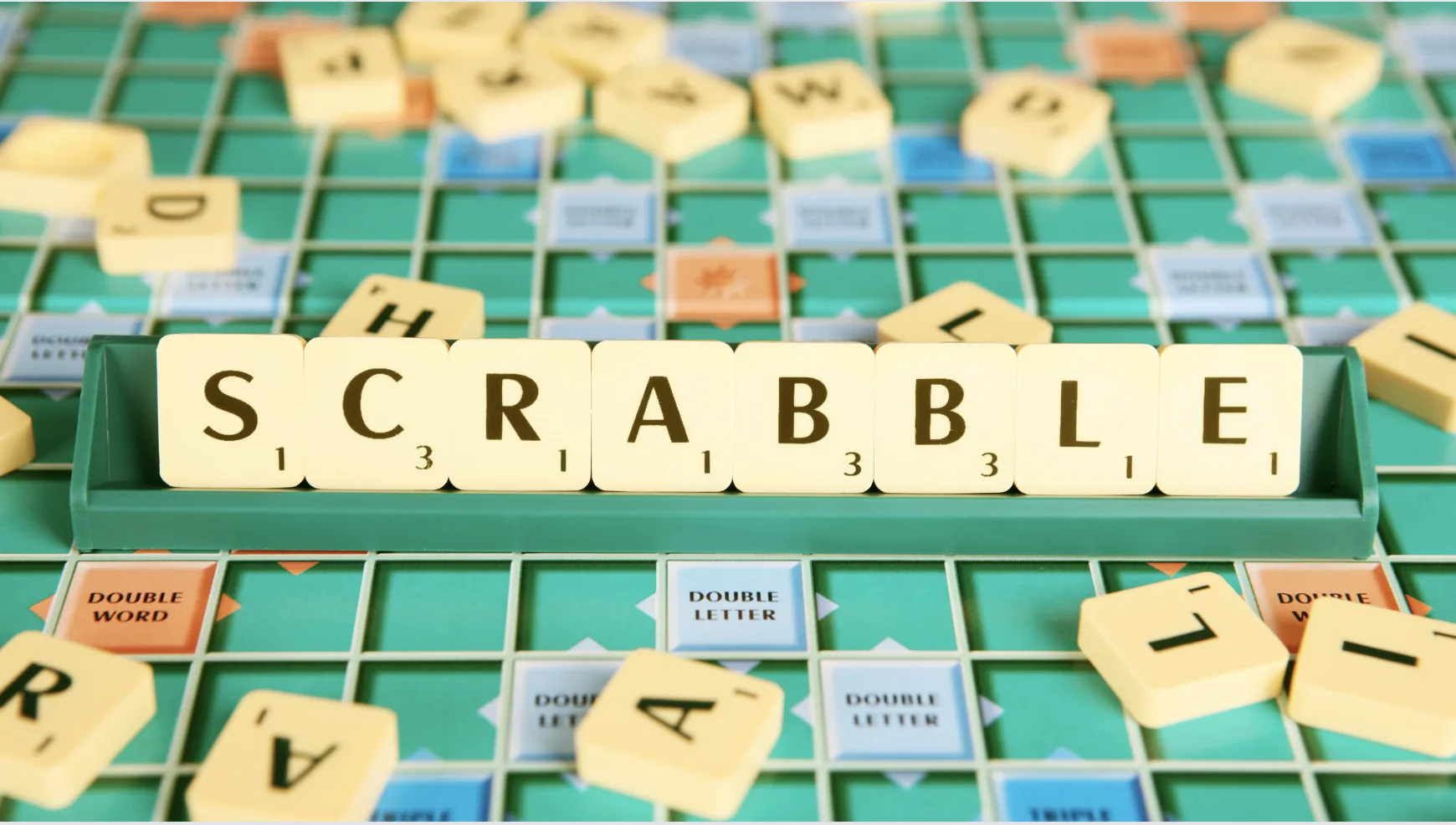
Outdoor Literacy Games
1. Letter treasure hunt
Educational treasure hunts can help your child improve literacy skills while also working on their gross motor skills!
To turn this fun activity into a literacy game, all you need to do is write down the letters of the alphabet (or the letters you think your child can recognize - for example, vowels) on separate pieces of paper, and hide them for your child to find.
Once your child’s found all the hidden letters, you can ask them to create as many words as possible using these letters!
2. Onomatopoeia game
This game requires a lot of imagination, and it’s the perfect literacy game to play outside!
Before you start, ask your child to pick their favorite zoo animals. Then, you can help them create description signs for each animal - include an introduction to the animal, as well as a drawing of this animal. Once you’re done, you can take these signs outside and create different “enclosures” for each animal. Then, all you need to do is visit each enclosure and ask your child to imitate the sound that particular animal makes!
Once again, this is a fantastic way to work on phonics, practice letter sounds, and to learn fun facts about their favorite animals.
3. I spy!
“I spy” is a game most of us are very familiar with, and it’s a particularly popular choice for when we’re travelling. If you ever find yourself stuck in the car, or waiting around at the airport, you can turn this boring situation into a fun, literacy game for the whole family. This game also offers a great opportunity for children to engage with the world around them!
Start with “I spy with my little eye, something beginning with the letter A”, and make your way through the letters of the alphabet until you get to the letter Z.
4. Alphabet game
If you’re not a big fan of guessing games, this alphabet game is also a great literacy game to play while you’re travelling, or when the whole family is a little bored!
Look around your surroundings and find something that begins with the letter A. Once you’ve spotted an object that begins with the letter A, the next person must find something that starts with the letter B. Continue until you get to the letter Z. Repeat!
5. Once upon a time...
Combining exercise and literacy has never been so easy!
To play this literacy game, all you need is a ball and some creative thinking skills. Gather your players and stand in a circle, leaving plenty of space between one another to allow the ball to be passed around (you can use your hands or your feet to pass the ball to the next player).
The first player must start the story with “once upon a time”, and then pass the ball to the second player to continue the story. Each player must contribute with one sentence and pass the ball around until the story has an ending.
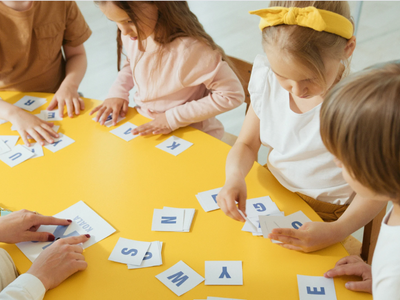
—————————————————————————————————————————
We hope you give these literacy games and activities a try for hours of fun-filled learning! For further guidance and activities, check out our free printable literacy resources:
To help your child learn to love reading and writing in a fun and interactive way, try our writing game for kids! Sign up today and get a FREE 7-day trial.
As always, you can reach out to us via email at [email protected], and keep up with exciting new resources and projects through our social media channels:


Make Reading & Writing Fantastically Fun!
- Award-winning reading & writing program for kids
- Improves spelling, grammar, punctuation & vocabulary
- Over 1,000 different learning games and activities


“My child hates writing.” What do I do?
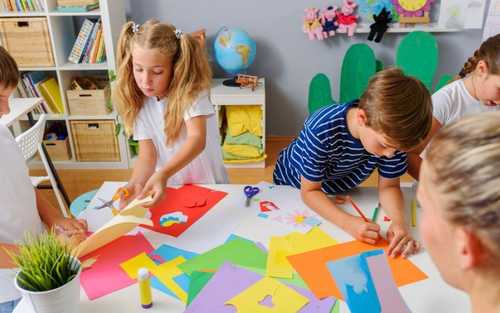

Fun Creative Activities For Children’s Wellbeing


